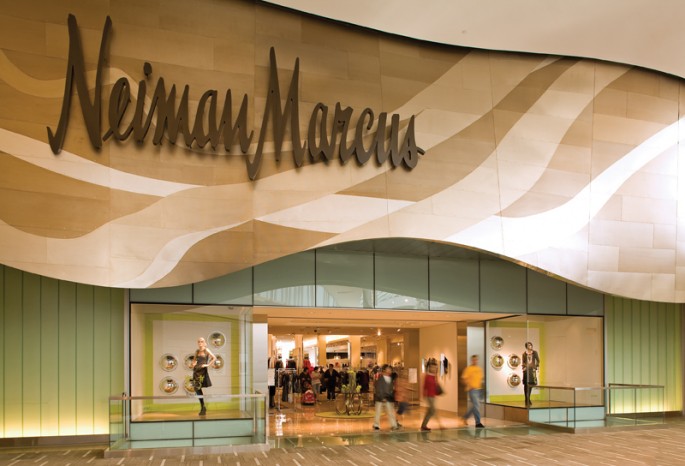
While seeing their collection on a retailing shark's floor is the epitome of success for many emerging designers, that doesn't necessarily mean they'll be swimming in cash
In fashion, as in any business, a label’s survival heavily depends on its retail distribution scheme. Ideally, it should be optimized to allow you to easily reach your target consumer, correctly predict demand to scale production, and receive a hefty profit – all with minimum hassle. And while some designers dream of fame associated with being stocked by Saks Fifth Avenue and Neiman Marcus, others boast sky-high margins by dealing exclusively with independent boutiques. Since both approaches have their perks and pitfalls, we’ve decided to share some insider insights to help you streamline your retail strategy.
Marketing & PR
A chance to see your collection in multiple locations all over the country is the main appeal of dealing with large department stores and upscale chains. Landing a deal with a retailing giant is a surefire way to dramatically increase brand exposure and recognition, and significantly expand your client base. Not to mention that this is a huge boost to any designer’s confidence.
However, product positioning is where specialty boutiques can give department stores a run for their money. Especially if you offer one-of-a-kind or customizable items. Independent retailers tend to have their own vibe, as well as a clear specialization combined with a highly personalized approach to customer service. All this translates into very loyal clientele and contributes to higher sell-through rates for your brand. That is, of course, if your label fits right in with the boutique’s unique style.

Turn the perks provided by independent boutiques - individuality, credibility in the consumers' eyes, and loyal client base - into revenue for your brand
Fostering Partnerships
If you aim to establish a lasting partnership with a luxury retail chain, be prepared to jump through hoops. That includes perusing lengthy manuals with detailed instructions on every aspect of labeling, packaging and shipping, as well as spending thousands of dollars to become EDI-compliant to name a few. However, all this effort can pay off. As Mary Gehlhar, the author of The Fashion Designer Survival Guide, points out:
“…it is in their [i.e. department store’s] interest to help a designer on all fronts. So ask them which stylists to ring to loan clothes to celebrities, which magazine editors would be most interested in the collection.”
Reaching out to independent boutiques has its own benefits. It often allows to deal with the owner directly, giving you an opportunity to negotiate mutually beneficial terms. Plus, you can pick their brain for insights into the consumer’s mind, get comprehensive feedback on your line’s performance, and ensure that their staff truly understand your product and can effectively convey its value to the customer – something next to impossible with a department store.

In negotiations with retailers: make sure you discuss all the terms and don't be afraid to drive a hard bargain
Money Talk
Independent retailers stock a limited array of products, which translates into lower foot traffic and a small chance of impulse buys as opposed to what you might expect from the department store.

Getting paid may become a stumbling block with the larger retailers
On the other hand, when it comes to profit margins, specialty boutiques are ahead of the game. Their clients put value above price, so a higher markup compensates for a lower sales volume. Moreover, department stores often demand sell-through guarantees and bulk discounts, and are quite slow to pay the invoice – or what is left of it after they subtract all the charge-backs and penalties for non-compliance with their rules. That means you might have to resort to factoring to cover your financial bases.
Despite having their advantages and disadvantages, both retailing routes can effectively lead your brand to realizing your business goals. Selling through specialty boutiques is an excellent way to test how well your product will do on the mass market and make tweaks to increase its appeal to the final consumer. And desire to distribute through upscale retailing chains will push you to streamline operations, helping your label move to the next level in organizing production and distribution.
Regardless of which approach you decide to adopt, offering a quality product, establishing clear communication lines, and unfailingly delivering on promises will help your brand build credibility, strengthening relationships with retailers, and ensuring lasting commercial success for your company.


About The Author: BridgeShowroom
Ken Nachbar is a co-founder and partner in Bridge Showroom. Ken loves working with designers, helping them open new doors, find new customers, and grow their businesses. With bachelor's degree in economics and an MBA from the University of Michigan, Ken combines 25 years of management skill and experience with his passion for fashion.
More posts by BridgeShowroom